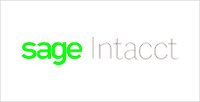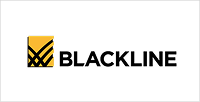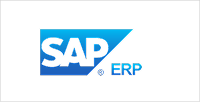
Trusted by Top CPA Firms for Outsourced Bookkeeping Services
Boost your firm’s efficiency and accuracy with our expert bookkeeping outsourcing solutions designed for CPA firms. With 15+ years of experience, a 97% CSAT score, and an 85 NPS, we support over 300 CPA firms in maintaining precise financial records while optimizing operational workflows.







How Our Outsourced Bookkeeping Expertise Boosts CPA Firm Efficiency
Tired of the Bookkeeping Blues?
Keeping the books tidy and up-to-date is no small feat as client demands grow and compliance requirements evolve. QX Accounting Services offers a streamlined outsourcing solution that not only keeps your ledgers precise and organized but also reduces your firm’s operational costs. Embrace this strategy to free up your team’s bandwidth for strategic tasks, ensuring that every client receives meticulous and timely financial reporting. This approach bolsters client trust and sets your firm apart as a proactive leader in financial management, poised for growth and innovation.
Identifying the Need for Bookkeeping Outsourcing in Your Firm
At QX, we pinpoint bookkeeping inefficiencies so your team can focus on high-value services, unburdened by routine tasks.
Streamlining Your Bookkeeping Processes
We analyze and streamline your bookkeeping workflows, allowing your staff to concentrate on advisory roles and client relationships, thus enhancing efficiency.
Customized Solutions for Your Firm’s Growth
Our tailored bookkeeping services adapt to your firm’s unique needs, boosting your capacity to serve clients and scale effectively without additional overhead.
Solve Staffing Gaps, Improve Accuracy, and Streamline Financial Records with Our Expert Bookkeeping Outsourcing Services.
Book a Free Consultation
How QXAS’ Bookkeeping Outsourcing Solutions Improve Workflow Accuracy
Our talented pools of outsourced bookkeepers adapt to your firm’s unique needs, boosting your capacity to serve clients and scale effectively without additional overhead.
Scope of Work
- Bank Reconciliation
- Credit Card Reconciliation
- Accounts Receivable
- Accounts Payable
- Payroll & Sales Gross up
What We’ll Need
- Completed checklist of QX accounting
- Copy of last year/current year’s working papers
- Access to Accounting Software
- Detailed Instructions & assumptions about the job
What You’ll Get
- Weekly/monthly job progress reports
- General ledger
- Profit & Loss account
- Balance sheet
- Open Item/ Query Report
Success Stories – Bookkeeping Outsourcing for CPA Firms
Listen to what our clients have to say about us!
Cristopher Carmona, CPA, speaks about his bookkeeping outsourcing experience with QXAS. He emphasizes how efficiently the team set up everything remotely and executed all functions, without any hiccups.
Join 300+ Accounting Firms in Reducing Costs by Up to 50%, Enhancing Accuracy, and Driving Long-Term Growth with Expert Bookkeeping Support.
Book a Free ConsultationExperience the QXAS Difference in Bookkeeping Outsourcing
Gain unmatched accuracy, efficiency, and security with bookkeeping solutions tailored to enhance your firm’s financial management.

Market Leaders in Outsourcing

Managed FTE Solutions

Four-eyed Review Process

Top-notch Talent

100% Data Security Assured

Seamless Integration

Enhanced Reporting & Governance

Consistently high CSAT Scores (>97%)
Software Capabilities
Your software, our expertise—the QX team of expert accountants are trained to use the tools you trust, ensuring a seamless and efficient process.









FAQs
Got questions? Resolve any doubts about outsourcing your firm’s bookkeeping requirements and learn how QX’s strategic expertise can transform your CPA firm.
Outsourced bookkeeping services help CPA firms and businesses manage financial records with greater accuracy and efficiency. They make daily accounting easier, save time, and improve overall business performance.
Outsourcing bookkeeping services benefits firms of all sizes. Small firms gain scalability and cost advantages, allowing them to manage work peaks and troughs effectively. For mid to large firms, shifting routine compliance tasks to outsourced providers enables a strategic pivot towards advisory roles, opening up new, high-value growth opportunities. This strategic shift frees up crucial time, empowering firms to explore and capture more lucrative markets.
The cost of bookkeeping outsourcing varies depending on factors such as the volume of transactions, the complexity of services required, and the expertise level of the bookkeepers. Typically, outsourcing can offer significant cost savings compared to in-house staff by reducing overheads like salaries and benefits. Firms can expect customized pricing models that align with their specific needs, providing both flexibility and cost efficiency.
Yes, if the firm is as concerned about the security of your financial data as you are. Work with a bookkeeping outsourcing services provider who is SOC 2, certified and further strengthens its cybersecurity posture with other certifications that prove that your data is safe.
Outsourcing bookkeeping services allows CPAs and accounting firms to enhance operational efficiency and focus on core business activities like client relations and strategic planning. Outsourcing bookkeeping saves time, reduces overhead costs, and provides access to expert bookkeepers with the latest accounting knowledge. This flexibility helps manage fluctuating workloads and expand services, optimizing resources while adapting to industry demands effectively.
An outsourced bookkeeper offers a cost-effective way to handle accounting without hiring full-time staff. Their experience in advanced tools help minimize errors, ensure accurate records, and boost overall efficiency.
Partnering with an outsource bookkeeping team gives your firm easy access to skilled professionals and advanced tools. It improves accuracy and delivers measurable ROI without the overhead of managing an in-house team.
Check the provider’s experience, credibility, data security protocols, service range and client reviews. Also, ensure they understand your industry and can scale with your firm’s growth.
Our Latest Insights
Let’s Work Together
Explore outsourcing solutions, request a free trial or discuss your practice’s needs with our expert consultants.





 Book a Virtual Meeting
Book a Virtual Meeting  Get Your ROI Estimate
Get Your ROI Estimate 